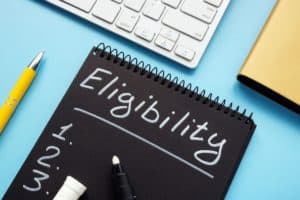
Historically, the state of Illinois, like many states, implemented a “payback” or “clawback” provision that allowed it to seek reimbursement from ABLE accounts after a beneficiary’s death. The state could seize any remaining funds in ABLE accounts to pay for the costs of medical care as well as Medicaid waiver services that the state had provided the beneficiary during their lifetime, through the Illinois Medicaid Program.
Changes to the Illinois ABLE Account Program
In 2017, Illinois amended the law that establishes its ABLE account program to allegedly eliminate the “payback” or “clawback” provisions mandated by federal Medicaid recovery laws. Specifically, the amended language states:
Unless prohibited by federal law, upon the death of a designated beneficiary, proceeds from an account may be transferred to the estate of a designated beneficiary or an account for another eligible individual specified by the designated beneficiary or the estate of the designated beneficiary. An agency or instrumentality of the State may not seek payment under subsection (f) of Section 529A of the federal Internal Revenue Code from the account or its proceeds for benefits provided to a designated beneficiary.
This change was a welcome development for the owners of ABLE accounts and their families. However, this change in state law directly conflicts with federal regulations and policy on the subject which requires a payback on ABLE accounts in certain circumstances that are particularly applicable to individuals with I/DD.
Federal CMS Regulations
The Centers for Medicare and Medicaid Services (CMS), a Division of the U.S. Department of Health and Human Services (HHS), have explicitly stated in a 2017 letter to State Medicaid Directors that states MUST seek recovery against the estates of particular deceased Medicaid beneficiaries. Those beneficiaries include individuals who received Medicaid at the age of 55 and older and those who received Medicaid coverage for certain Long-Term Services and Supports and were subject to PETI rules.
As a result, any Medicaid beneficiary 55 or older with an ABLE account arguably is subject to Medicaid recovery under CMS policy, despite the changes to Illinois state law. Likewise, any Medicaid beneficiary with an ABLE account who receives “Long-Term Services and Supports” and is subject to PETI rules is subject to Medicaid recovery. This includes anyone who receives any Illinois Home and Community Based Services (HCBS) Waiver, including many individuals with special needs. Illinois HCBS Waiver programs include:
· Children and Young Adults with Developmental Disabilities-Support Waiver
· Children and Young Adults with Developmental Disabilities-Residential Waiver (CILAs (group homes) and ICFDDs)
· People who are Medically Fragile, Technology Dependent
· Persons with Disabilities
· Persons with Brain Injuries (BI)
· Home Based Support Services for Adults with Developmental Disabilities
· Persons who are Elderly
· Persons with HIV or AIDS
· Supportive Living Program
These waiver programs allow individuals to remain in their homes or community-like settings rather than institutions. These waivers are often valuable and preferable resources for eligible children, adults, and families. However, under current CMS policy, individuals who receive services from these waiver programs and own ABLE accounts are subject to Medicaid recovery upon their deaths, despite the change in state law that ostensibly protects ABLE accounts.
Rubin Law is an Illinois law firm whose sole purpose is to enhance the lives of children and adults with intellectual disabilities, developmental disabilities, and mental illnesses. We offer legal service and future planning for adults and children with special needs. Our patience, compassion, and unique understanding of individuals with disabilities and those who care for them allow us to offer the legal guidance that you need. We have the skills, knowledge, and most importantly personal experience, to help you provide for your child’s future needs and meet your objectives. Set up a time to speak with us about your family by emailing us at email@rubinlaw.com or calling 866-TO-RUBIN.



